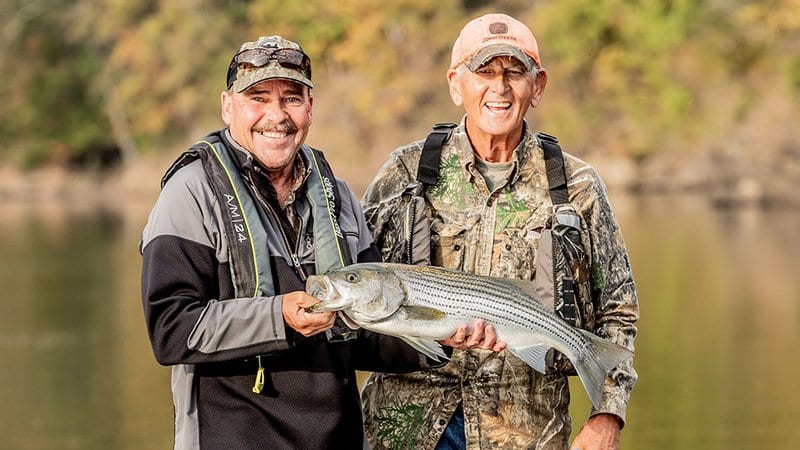Randy Zellers Assistant Chief of Communications
HOT SPRINGS – With summer heat finally breaking loose, water temperatures are on the rise. With warmer water temperature comes an inevitable increase in fish mortality, even with catch-and-release fishing. This is especially true for striped bass pulled from Arkansas’s top striped bass fisheries. It may seem counterintuitive, but keeping your striped bass can actually increase the number of stripers available for other anglers.
According to studies on delayed mortality, stripers caught any time the surface temperature exceeds 75 degrees risk a much greater risk of dying, even after release. Even though oxygen is available in the upper portion of the water column, stripers cannot handle the heat. Instead they go deep, where cool water is more prevalent. When caught from this cooler water, stripers undergo an extreme amount of stress, both from the fight and from the water temperature. Many may seem OK at release, but never recover to get back to their preferred water temperature.
Many well-meaning striped bass anglers may enjoy a day full of catching hard-pulling striped bass at Lake Ouachita, Beaver Lake or Norfork Lake thinking they’re releasing their catch unharmed to fight another day. Instead of releasing their fish to die later, it’s actually a better idea to keep the striped bass that are caught until they reach their limit. Striped bass limits are set at a conservative three-fish-per-person in these top striper lakes. Keeping those three fish and calling it a day is a much better option than catching a half dozen or more that are released just to die.
There’s nothing wrong with keeping a few fish for the table, and limits are set with the notion that some people will want to enjoy a fresh fish dinner after their day on the water. The AGFC stocks 515,000 striped bass each year for Arkansans to enjoy and to make use of the large, deep areas of these lakes no other fish use. Anglers are encouraged to continue pursuing these large, hard-fighting fish but should be aware that catch-and-release doesn’t work well for fish that come from deep water once water temperatures rise.






